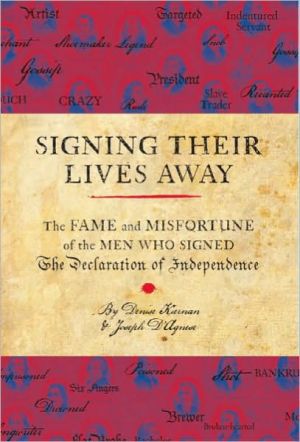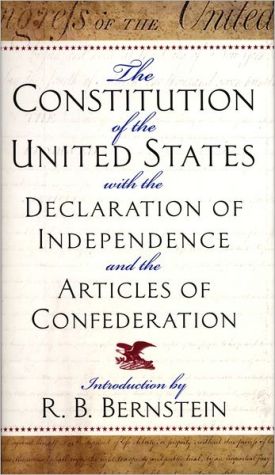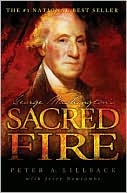Great and Noble Scheme: The Tragic Story of the Expulsion of the French Acadians from Their American Homeland
"Altogether superb; a worthy memorial to the victims of two and a half centuries past."—Kirkus Reviews, starred review\ In 1755, New England troops embarked on a "great and noble scheme" to expel 18,000 French-speaking Acadians ("the neutral French") from Nova Scotia, killing thousands, separating innumerable families, and driving many into forests where they waged a desperate guerrilla resistance. The right of neutrality; to live in peace from the imperial wars waged between France and...
Search in google:
"Altogether superb; a worthy memorial to the victims of two and a half centuries past."—Kirkus Reviews, starred review Publishers Weekly Faragher relates, in all its complex, searingly sad details, the story of how the hapless French Acadians were run out of their Nova Scotia homes-a story known to most from Longfellow's Evangeline. Caught between French and British empires, these peaceful farming and fishing families, descendants of French settlers, struggled to maintain their neutrality and their birthright ways. But in 1755, British and colonial New England forces rounded them up and dispersed them by sea throughout North America. Families were broken up; hundreds died on their voyages; their towns were torched; and only small, scattered communities, like the Cajuns of Louisiana, survived into the modern era. "The removal of the Acadians," concludes Faragher (the Yale biographer of Daniel Boone), "was the first episode of state-sponsored ethnic cleansing in American history." More than that, the communities destroyed, some 150 years old, had lived peaceably and intermarried with the Mikmaq natives of the Canadian shores. A way of life that could have been a harbinger of our own era of diversity was destroyed. Unfortunately, the book overwhelms the reader with detail, as if Faragher wanted to set down every fact of Acadian history so it would never again be lost. Instead, it is readers who'll be lost in this gripping tale of a dishonorable affair in American history. B&w illus. Agent, Gerard McCauley. (Feb.) Copyright 2004 Reed Business Information.
1L'Ordre de Bon-Temps : the French arrival in l'Acadie, 1604-161612Seigneurs et Roturiers : the birth of the Acadian people, 1614-1688353Cunning is better than force : life in the borderland, 1671-1696714Nos Amis les Ennemis : the English conquest, 1696-1710995The meadows of l'Acadie : imperial designs and Acadian desires, 1710-17181256To gett them over by degrees : controversy over the oath, 1718-17301517The French neutrals : years of Acadian prosperity, 1730-17391798Plac'd between two fires : Paul Mascarene and imperial war, 1739-17472099Discord and desolation : the British buildup, 1748-175324510By fire and sword : the siege of Beausejour, December 1753-July 175527911Driven out of the country : the decision to remove the Acadians, June-July 175531312Gone, all gone : the expulsion, August-December 175533513Removed to a strange land : the exiles, 1755-175836514Chasse a Mort! : the refugees, 1756-176039315The rays of the morning : end of the removal era, 1760-178541716Le Grand Derangement : memory and history443
\ Publishers WeeklyFaragher relates, in all its complex, searingly sad details, the story of how the hapless French Acadians were run out of their Nova Scotia homes-a story known to most from Longfellow's Evangeline. Caught between French and British empires, these peaceful farming and fishing families, descendants of French settlers, struggled to maintain their neutrality and their birthright ways. But in 1755, British and colonial New England forces rounded them up and dispersed them by sea throughout North America. Families were broken up; hundreds died on their voyages; their towns were torched; and only small, scattered communities, like the Cajuns of Louisiana, survived into the modern era. "The removal of the Acadians," concludes Faragher (the Yale biographer of Daniel Boone), "was the first episode of state-sponsored ethnic cleansing in American history." More than that, the communities destroyed, some 150 years old, had lived peaceably and intermarried with the Mikmaq natives of the Canadian shores. A way of life that could have been a harbinger of our own era of diversity was destroyed. Unfortunately, the book overwhelms the reader with detail, as if Faragher wanted to set down every fact of Acadian history so it would never again be lost. Instead, it is readers who'll be lost in this gripping tale of a dishonorable affair in American history. B&w illus. Agent, Gerard McCauley. (Feb.) Copyright 2004 Reed Business Information.\ \ \ \ \ Library JournalFaragher (history, Yale Univ.; Daniel Boone: The Life and Legend of an American Pioneer) here looks at the history of the French Acadians from the early 1600s to today. He follows the development of their prosperous farming communities in l'Acadia (Nova Scotia), their symbiotic relationship with the native Mikmaq Indians, and their staunch neutrality in all things imperial. The book centers on the tragic years of 1755-63 when the British forcibly removed the Acadians, destroyed their villages and homesteads, and resettled the area with New Englanders. During this period, approximately 18,000 Acadians were dispersed throughout the British Empire, with devastating consequences: about 10,000 perished owing to starvation, exposure, disease, and warfare. While the royal governor of Nova Scotia claimed their removal was a "cruel necessity" since the Acadians were of French descent and Catholic and therefore not trustworthy as British subjects, Faragher makes the case that the removal of the Acadians was in reality an "ethnic cleansing" similar to what happened in Yugoslavia in the 1990s; he also looks at the aftermath and subsequent historical debates. Well written and researched, this important look at an often overlooked period in American history will appeal to both lay readers and scholars. Recommended for academic and larger public libraries.-Robert Flatley, Kutztown Univ. Lib., PA Copyright 2004 Reed Business Information.\ \ \ Kirkus ReviewsFrontier historian Faragher (Daniel Boone, 1992, etc.) sheds new and revealing light on a shameful campaign of 18th-century ethnic cleansing. Apart from Longfellow's Evangeline and The Band's song "Acadian Driftwood," Faragher notes, there seem today to be only scattered folk memories and scholarly considerations of the removal of the French-speaking Acadians from their homeland. The event merits attention, not least because, perhaps more than any other colonial people of the New World, the Acadians acclimated to their surroundings along the Atlantic coast of Canada and became Rousseauvian natural men of a kind that would make Boone envious. "Intermarrying with the native M'kmaq people of the region," Faragher writes, "the Acadians forged an ethnic accord that was exceptional in the colonial settlement of early North America." In part out of deference to their independence-minded native kin and in part to keep out of harm's way, the Acadians held to a studied neutrality. It did not help; both England and France demanded that they swear allegiance to their respective crowns, a requirement the scorned, illiterate peasants repeatedly evaded throughout the 17th and early 18th centuries. Following fresh hostilities between the warring colonial powers, English officials in Canada hatched a plan in 1745 to remove the Acadians and resettle Nova Scotia with loyal English-speaking Protestants. An enlightened governor failed to put the plan into effect, but on leaving for England for medical treatment he was succeeded by a man all too willing to see the Acadians go. Faragher takes care to name the guiltiest of the bureaucrats and soldiers involved as he describes what happened next: the forcedremoval, in the autumn of 1755, of nearly 7,000 Acadians, a thousand or more of whom died in transit to other colonies, and the onset of a long guerrilla war that claimed the lives of many British soldiers as well. Altogether superb: an accessible, fluent account that advances scholarship while building a worthy memorial to the victims of two and a half centuries past. Agent: Gerard McCauley/Gerard McCauley Agency Inc.\ \








